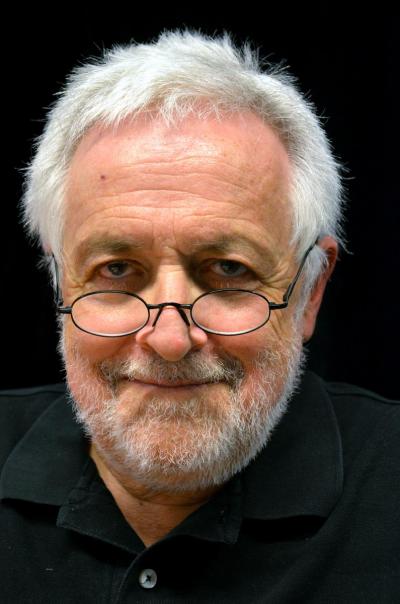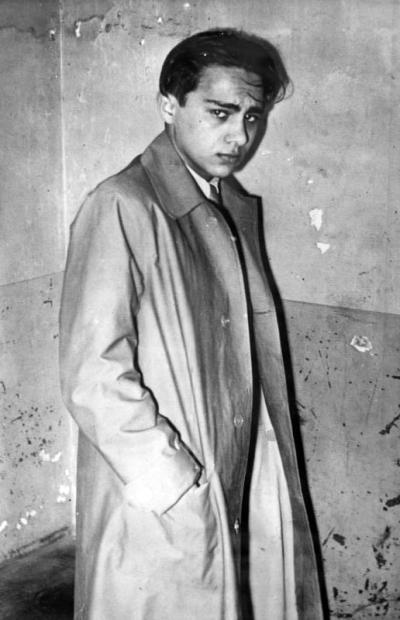How a Polish Jew survived the Nazi regime in Frankfurt: Leopold Tyrmand’s autobiographical novel “Filip”

“For as long as I can remember, there had always been a slight tendency hidden in my own abyss to meander my way superficially through the realms of life, not to make any lasting decisions, to avoid the profundity of fate, relationships and feelings. The better part of me fought a never-ending battle against this tendency, which led me all too often to be dangerously half-hearted”, summed up the 23-year-old, whose supposed nonchalance does not just put him in dangerous situations, it also fails to hide the fears and longings of a young adult. When Filip meets and falls in love with the young Hella, daughter of a high-ranking German officer in the Reichswehr, his true self begins to peer out from behind the mask of Filou more and more frequently. It reveals a sensitive young man who is trying in vain not to let himself be broken by the madness of war. A young man who yearns for closeness and security. To win over his beloved, he turns his back on life as a waiter at the Parkhotel. And new characters and new upheavals enter into his life: Baroness von Wrangel who helps him find a job as a librarian. The Pole Ziutek, who gets him an aliens’ passport. And the Italian Dino, the Hitler supporter Janowsky and the deserter Max. Added to this are the Allied bombings of the city which get heavier and heavier, an interrogation by the Gestapo and a murder which painfully reminds Filip just what the true reality of war is like …
The autobiographical background: Leopold Tyrmand
The novel “Filip” creates a lively atmospheric picture, from a hitherto little known perspective, of a major German city during the Second World War, for which the author Leopold Tyrmand was able to fall back on his own life story. Tyrmand came from an assimilated Jewish family and was born in Warsaw in 1920. After his school-leaving exams, he studied at the Academy of Arts in Paris, but returned to Poland in 1939. After Poland was invaded by Germany, he fled to Vilnius, where he joined the Resistance and was arrested by the Soviet People’s Commissariat for Internal Affairs (NKWD - Narodnyj kommissariat wnutrennich del). When Germany attacked the Soviet Union, he managed to escape. With the aid of forged documents, he pretended to be a Frenchman and reported voluntarily for work in Germany with the intention of then fleeing to France via Germany. He spent most of 1942 to 1943 as a waiter in the Rhine-Main region – just like his alter ego in his autobiographical novel. During his attempt to reaching neutral Sweden as a sailor, he was captured by the authorities and imprisoned in the Grini concentration camp near Oslo, where he lived out the end of the war. His parents also ended up in prison during the German occupation of Poland. His father was murdered in Majdanek concentration camp near Lublin. His mother survived the Holocaust and emigrated to Palestine at the end of the war. After the end of the war, Tyrmand returned to Warsaw where he would become one of the most dazzling Polish intellectuals of the 20th century and a renowned bestselling author. His criticism of the Soviet regime meant that, from 1954, he faced increasing problems with censorship, which culminated in a publication ban. Leopold Tyrmand emigrated to the United States in 1966. He died in Fort Myers, Florida in 1985.
In Poland, the author and spiritual father of the novel “Filip” is considered one of the most popular authors in his home country. During his lifetime, he was held in high esteem in literary circles in Germany as well, and his novels, such as “Das Böse” (1956) and “Ein Hotel in Darlowo” (1962), which were critical of the regime, were translated into German quite early on. It is inexplicable why his autobiographical novel about a Polish Jew’s will to survive in National Socialism had to wait so long to be translated into German. But now, 60 years after its publication in Poland, the noteworthy first German-language edition is available, translated by Peter Oliver Loew – and invites the reader to (re)discover the Polish author Leopold Tyrmand.
Katarzyna Salski, January 2022







